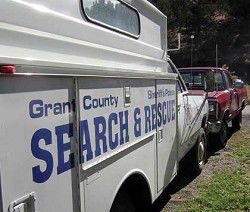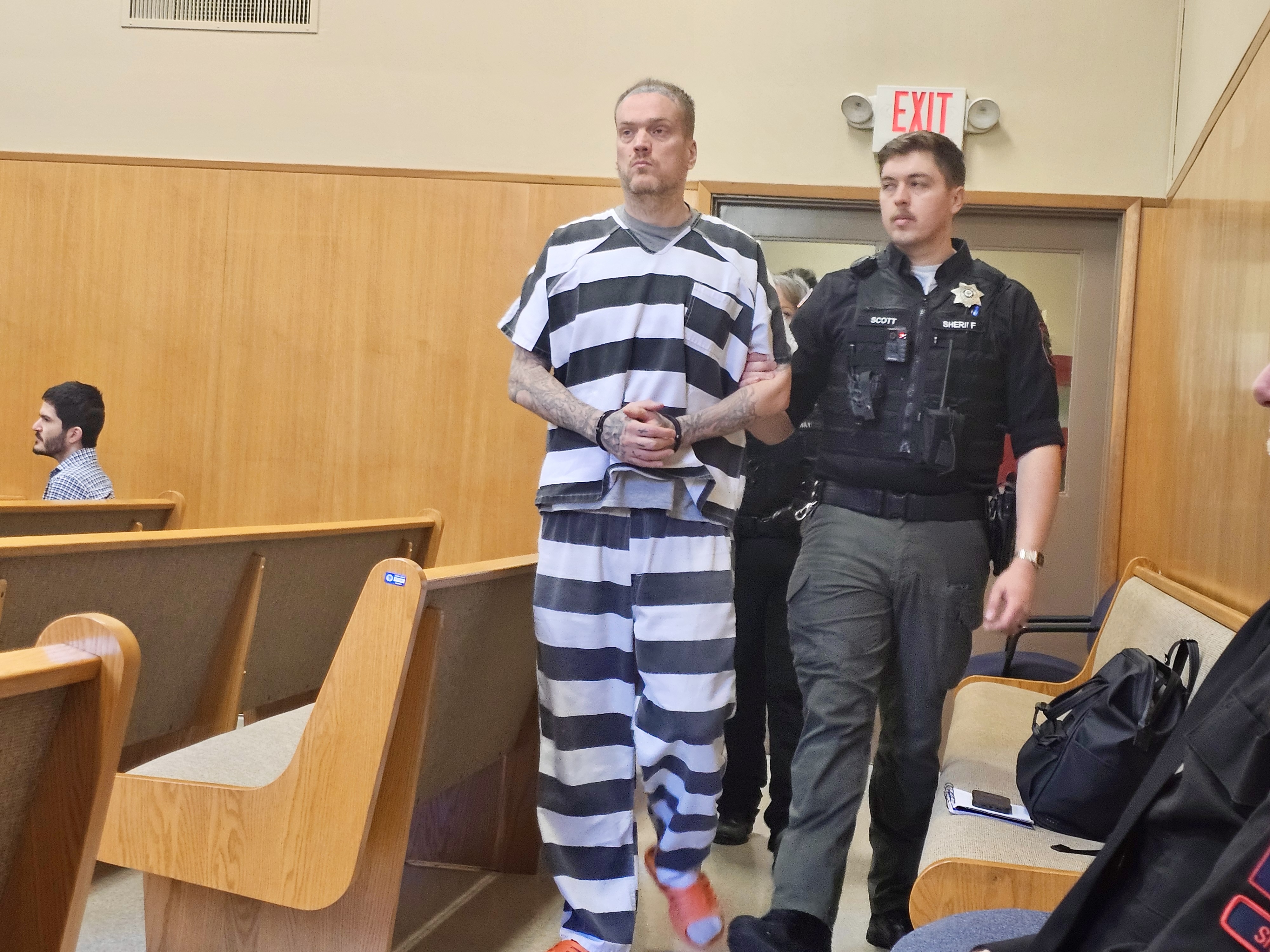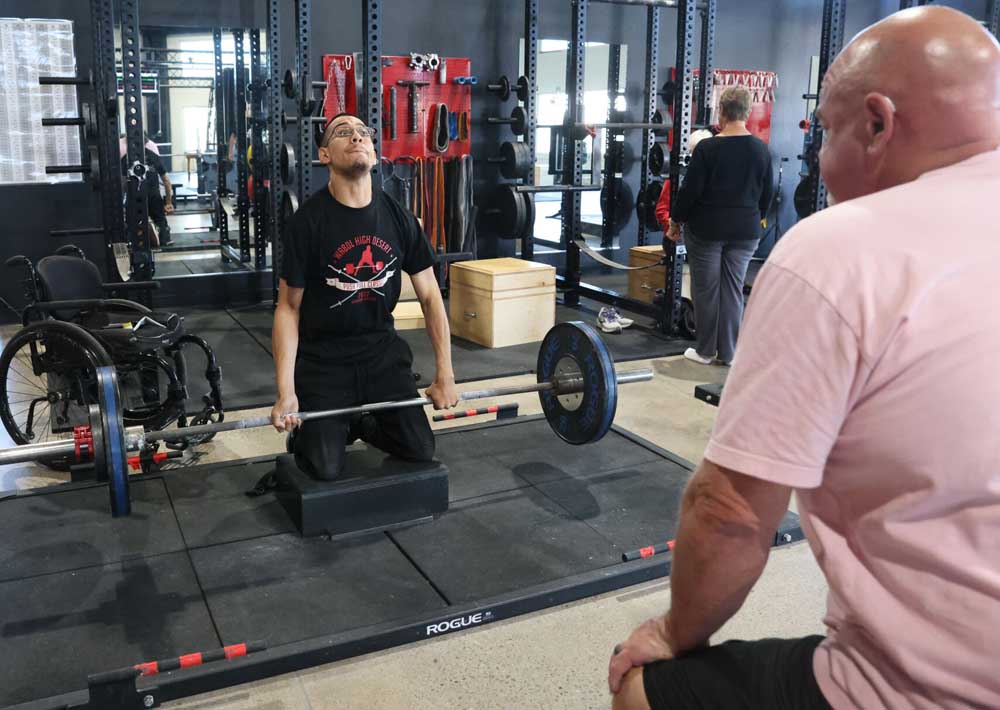Sheriff suspends posse
Published 5:00 pm Tuesday, October 17, 2006

- <I>The Eagle/Patty Mantia</I><BR>The sheriff's search and rescue posse is temporarily not operating because of insurance and status issues.
CANYON CITY – The volunteer Grant County Sheriff’s Search & Rescue Posse is suspended while insurance and other issues are resolved.
Trending
The change could soon become a safety issue as Grant County, one of the largest counties in Oregon, has only five individuals available to conduct search and rescue operations.
“Right now search and rescue is being handled by me, the undersheriff and three deputies.” said Grant County Sheriff Glenn Palmer, who recently announced he had suspended operation of the posse.
The shortage of manpower puts the sheriff’s office in a difficult situation, he said.
Trending
“There are some certain criteria that will have to be met before we are able to devote any manpower to a search and rescue,” said Palmer. “We have to look at the individual. What are their circumstances? Are they handicapped? Are they young or old? And many other things that have to be looked at now before we will even consider looking for them.”
Palmer received notice from the county that it would be unable to cover any volunteers on the Search & Rescue Posse on county insurance or provide workers compensation benefits for personal injury because of the tax status of the organization.
The posse received money from outside sources for equipment for search and rescue operations, including grants and gifts, and this money and the equipment purchased with it, puts the posse in a 5013-c tax status. This tax status puts the posse in the same grouping with independent contractors who bid on county work, and provide their own insurance to employees.
“We have some things that need to be resolved, as far as what their status as an organization is and where their place of business would be,” said Palmer.
The posse used the sheriff’s office to receive mail and conduct business, but under its current status, it would have to sever ties and become an independent entity. This would entail providing much of its own supplies and insurance coverage. As Palmer sees it, this would put an extreme hardship on an organization that is already operating strictly on a volunteer basis and seeking out independent sources of revenue to obtain necessary equipment for day-to-day operations.
“If they maintain their current status,” said Palmer, “they would have to provide their own liability insurance and also provide insurance for all the equipment that they have obtained thus far. What I have been told is that if they remained this way, they would even have to break off from the county and contract with the county to provide search and rescue services to the public as independent contractors.”
Since the Grant County search and rescue budget is small to begin with, the possibility of paying an independent agency to conduct search and rescue could be a fiscal impossibility.
“I get $2,000 a year for search and rescue,” said Palmer. “Many times I end up taking money out of the patrol budget to conduct search and rescue operations.”
Grant County Judge Dennis Reynolds first raised the issue of the relationship between the posse and the county. He said the undersheriff came to him and asked if the county could store posse equipment. Reynolds asked how much that equipment was valued at and was told about $250,000, he said. No one apparently insures the equipment, Reynolds said. That raised a red flag, he said.
“All of a sudden it became obvious that we needed clarity as to the working relationship between the posse and the county. Another indicator that there was something awry as far as the contractual understanding between the posse and the county was that they (the posse) applied for and received a grant.”
Reynolds discussed the significance of this.
“When I described all of these things to counsel, they said that it appears as though they have ‘perforated the corporate veil.’ Anybody looking to them for liability for their actions will see them as the county. I’ve had a conversation with the sheriff and told him I see two solutions.
“If they want to maintain their autonomy they need to have their own place of business. If they did this, then we would contract with them. The contract would state what services they provide, and it would be facilitated through the sheriff, and all of that would be nested in a contractual arrangement between the county and the posse.”
Reynolds explained another possibility.
“The second alternative is they truly become us (the county). They become a group of volunteers organized under the administration of the sheriff. The downside to that is that grants all go through the public process. They would lose this independence. They would have to do things the way county government stipulates. They can be independent, or they can be us, but I have left that decision up to the sheriff,” he said.
Reynolds didn’t have any immediate solution to offer in regards to the current status of search and rescue in Grant County.
“I got an immediate response from the sheriff,” said Reynolds, “saying that he won’t use the (the posse) in search and rescue, and that it will be commissioned officers that do search and rescue until we can get this all resolved.”
Members of the posse would not comment on the issue at this time and have been meeting to discuss their status.









